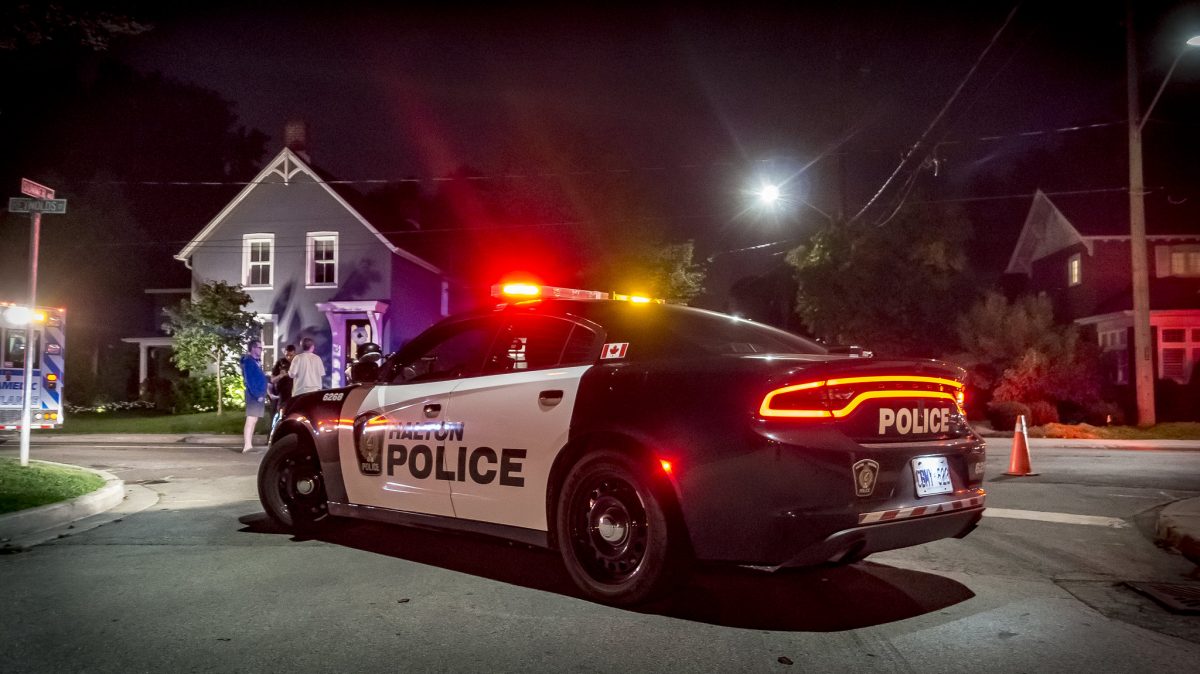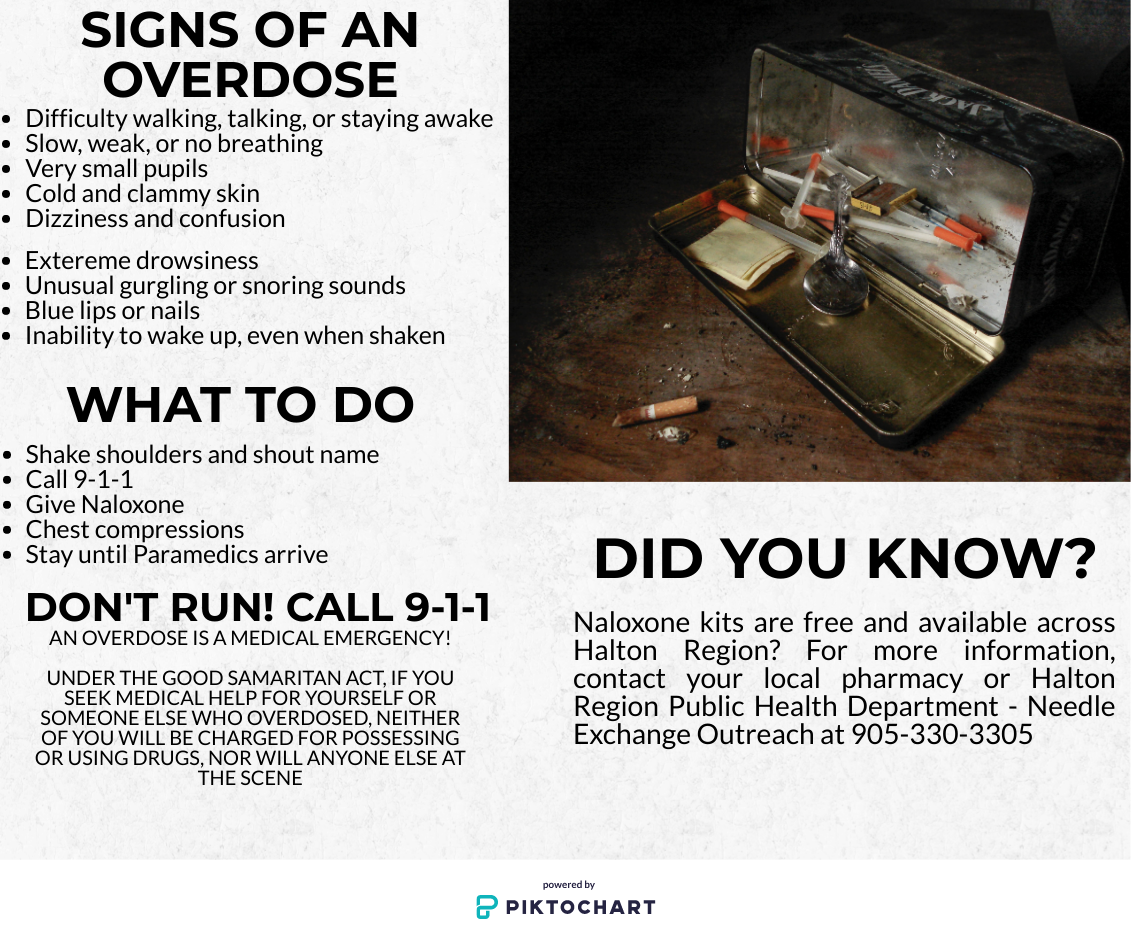Overdoses, mental health calls keep police and crisis teams busy amid pandemic

While many residents in Halton Region were keeping up to date with COVID-19 numbers and anticipating the reopening of their favourite salon, police were seeing a shift in the number and types of calls for service.
A recent Statistics Canada report shows calls to police for criminal matters were significantly lower between March and June 2020, but calls for mental health were up almost 11 per cent compared to 2019. The report, which collected data from seventeen large police services across the country and represents approximately 59 per cent of the population, also noted a 9.1 per cent decline in the number of overdoses police responded to.
Statistics collected by Halton Regional Police tell a different story.
According to Detective Sergeant Paul Foley, Halton Police saw an increase in opioid-related overdoses in 2020 compared to last year, however the rise in drug overdoses is not exclusive to opioids. Police also report seeing cocaine, methamphetamine, benzodiazepines, and MDMA linked to overdose occurrences.
Is the pandemic to blame?
“The belief is that the increase in overdoses is likely due to a decrease in access to treatment and community support services during the course of the COVID-19 pandemic,” said Foley, via email. He also adds that “there have also been reports of a change of supply in the illicit drug market resulting in unknown toxicity levels being made available to individuals with problematic substance use.”
Peggy Coughlin-Smith, a Crisis Intervention Specialist from the Canadian Mental Health Association, agrees the lack of community supports during the pandemic were a major contributing factor to the increase in overdose and mental health calls. In an email, she explains, “The pandemic shut down almost all face to face services except for police and EMS response. This created a marked deficit in how vulnerable populations were served and the highest risk were left without sufficient support.”
Even with some services adapting to a virtual environment, the Crisis Outreach and Support Team (COAST) saw a marked increase in calls for assistance from first time callers.
“Those with addictions relied on support groups, day programs, meetings with sponsors… However this was eliminated overnight and people were left with themselves and their phones. Virtual supports were implemented however for some this has proved to be insufficient as physical interaction and engagement was identified as a necessary part of recovery and safety.”
Coughlin-Smith adds “People stayed in their homes, waiting for the virus to pass. There was less interaction outside however pandemic fatigue set in and anxiety and depression were paramount. People gravitated back to habits and addictions as they grappled with the side effects of social isolation and difficult family dynamics that were exacerbated by quarantining. Access to drugs has never been easier as one can order anything on line and have it delivered to your home.”
An overdose is a medical emergency.
Halton Police would like to remind the public to know the signs of an overdose, don’t run and to call 9-1-1 right away. Under the Good Samaritan Act, if you seek medical help for yourself or someone else who overdosed, neither of you will be charged for possessing or using drugs, nor will anyone else at the scene. Carry Naloxone, know your tolerance, never use alone, and go slow.
For information on how to access a free Naloxone kit, click here. For local addictions support, including family programs, click here.

